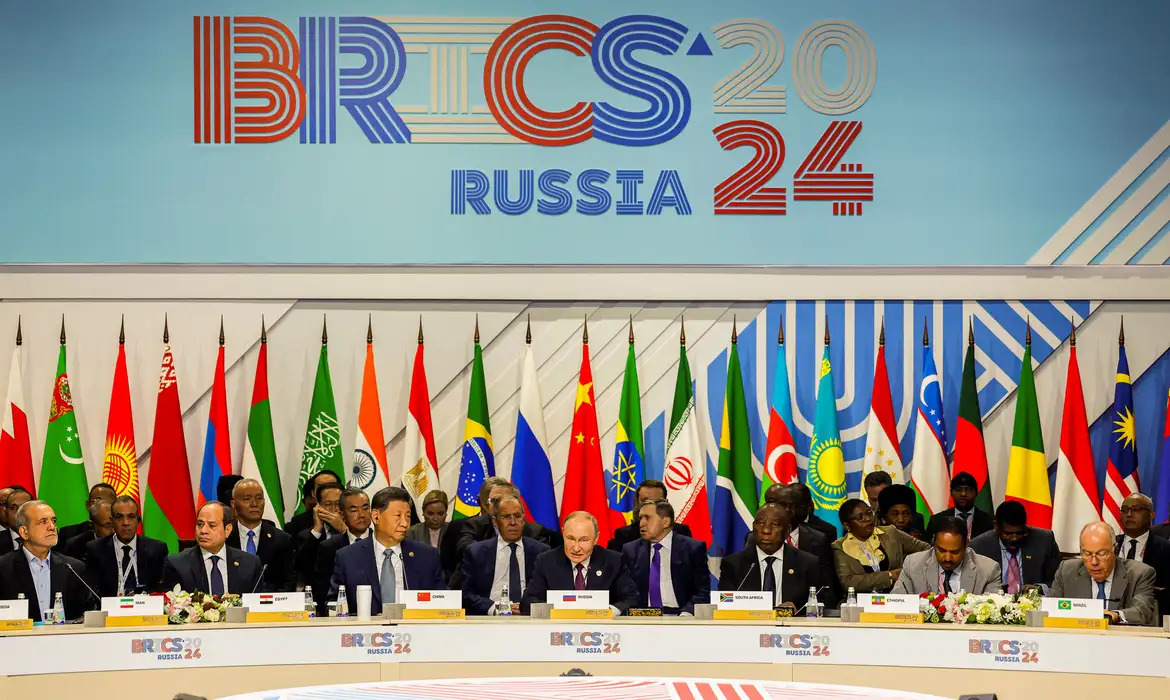
Richard Javad Heydarian, Professorial Chairholder in Geopolitics, Polytechnic University of the Philippines
Dec 13, 2024
The West’s dominating influence around the world has come under heavy scrutiny as open conflicts rage on in Europe and the Middle East. Does this year’s BRICS Summit, hosted in Russia, represent an inflection point in the global community’s tolerance for U.S.-led order?
Mohamed ElBaradei, Director General Emeritus, International Atomic Energy Agency; Nobel Peace Prize Winner
Dec 03, 2024
At 82, I have lived through countless political and social upheavals, enough to become somewhat inured to history’s recurring cycles. But recent developments have left me profoundly shaken and afraid. The bedrock principles of international law, established in the aftermath of World War II, are being flagrantly undermined. The ban on acquiring territory by force, the obligation to protect civilians during conflict, the limitations on the right of self-defense, and the United Nations Security Council’s mandate to “maintain international peace and security” are all unraveling, with little regard for the consequences.
Tian Shichen, Founder & President, Global Governance Institution
Anthony Moretti, Distinguished Research Fellow at Global Governance Institution, Associate Professor at Robert Morris University
Dec 03, 2024
A fundamental shift in how the international community approaches global governance is required. Through concerted action, nations can resist the pull of unilateralism and build a more inclusive and stable international order.
Li Zixin, Associate Researcher, China Institute of International Studies
Nov 22, 2024
Threats of violence are pushing the region to the brink. Israel said it would exact a “deadly and heavy” toll for any Iranian attack. In turn, Iran promised to “retaliate tenfold,” and its hardliners want to lift the ban on developing nuclear weapons. Lines are blurring that were once seen as inviolable.
Sun Chenghao, Fellow, Center for International Security and Strategy of Tsinghua University; Munich Young Leader 2025
Zhang Xueyu, Research Assistant, Institute for Global Cooperation and Understanding at Peking University
Nov 18, 2024
China and the United States held their first governmental dialogue on artificial intelligence in May. But skepticism arose about its value because the U.S. continued to impose technological restrictions on China. Here are some suggestions for how to move forward toward greater understanding and mutual security.
Jade Wong, Senior Fellow, Gordon & Leon Institute
Nov 18, 2024
The Russia-Ukraine conflict, which broke out in February 2022, marked the latest episode of the use of warfare as a tool to accelerate change in the world order. But two other events disturbed Asia and the Middle East: U.S. House Speaker Nancy Pelosi’s visit to Taiwan in August 2022 and the Israel-Hamas conflict, which broke out in October 2023. People began to worry about potential interplay across three war zones. Such a prospect has become more prominent in recent months, and may be worthy of note by historians.

Jodie Wen, Postdoctoral researcher and assistant fellow, Center for International Security and Strategy at Tsinghua University
Nov 18, 2024
Collaborating in various fields after expansion, BRICS members remain dedicated to coping with U.S. hegemony and sanctions, as well as reducing trade and investment barriers and accomplishing common development. The group’s influence is on the rise.
Richard Weitz, Senior Fellow, Hudson Institute
Nov 08, 2024
BRICS represents a major shift in how Global South states are approaching their international agenda, and the latest summit in Russia - amid conflict in Ukraine and changing winds in America - is an opportunity for member nations to play the part of a leader among their peers.
Back to Top

- China-US Focus builds trust and understanding between the U.S. and China through open dialogue among thought leaders.
- Our Offerings
- Topics
- Videos
- Podcasts
- Columnists
- Research Reports
- Focus Digest
- Stay Connected
-
Thanks for signing up!
- Get the latest stories from China-US Focus weekly.